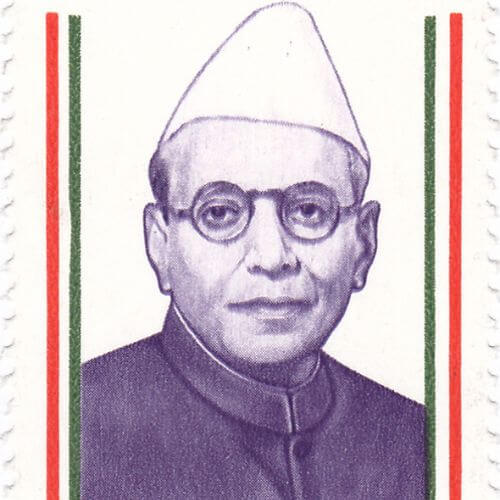Early Life
Balasaheb Gangadhar Kher was born on 24 August 1888 in Ratnagiri, in present day Maharashtra. Born into a middle-class family, Kher spent his childhood in a small town – Kundgol. He studied at the New English School in Pune through the guidance from his mentor, Gopal Krishna Gokhale.
Kher had a stellar academic record. He pursued a Bachelor of Arts course at the Wilson College Bombay (1908) and was awarded a high distinction. Kher also received the Bau Daji Lad award for his outstanding performance in Sanskrit. After completing his B.A. degree, he enrolled as a ‘vakil’ and then qualified as a solicitor (1918).
Kher established a law firm, Manilal Kher & Co. (1918) and also started the internationally reputed Bombay Law Journal (1923). He continued his legal practice even when he was actively involved in the Indian freedom movement.
Kher wanted to improve education in Maharashtra. He regulated and standardised the law program at the Government Law College, Mumbai. He chaired the Wardha Education Committee of the Central Advisory Board of Education (1929). This Committee made recommendations on to reform education in India – particularly, increasing expenditure on education.
Role in India’s Independence movement
Inspired by Tilak and Gandhi, Kher joined the Indian freedom movement. He participated in the Non-Cooperation Movement (1920). He was arrested for his involvement in the Salt Satyagraha (1930) and Quit India Movement (1942).
Kher emerged as a Congress stalwart in Maharashtra. He was appointed as the Secretary of the Bombay branch of the Swaraj Party and then held important positions in the Congress Party like – President of Bombay Provincial Congress Committee and President Harijan Sevak Sangh Maharashtra.
He took part in social reform movements as well. Kher founded the Bombay Legal Aid Society and Adivasi Seva Sangh – an organisation that worked on economic and educational empowerment of adivasis. He served as the Vice-President of the Bombay Rescue Home for Women.
Kher participated in Congress’s first electoral campaign in Bombay. He was elected as a member in the Bombay Assembly and then went on to become the Chief Minister in 1937. He repeated this achievement in the 1946 elections. He was the Chief Minister of Bombay till the 1952 General Elections. During his second term as Chief Minister, he helped establish the Poona University (now known as the Savitribai Phule Pune University) in 1949. A building on the University Campus was named Kher Bhavan to commemorate his work on promoting education,
Contribution to Constitution Making
Kher was elected to the Constituent Assembly from Bombay on a Congress Party ticket (1946). He contributed to discussions on prohibition of intoxicating drinks and drugs, appointment of Governors and right to equality.
Later Contributions
Kher took up the role of a diplomat – he served as the Higher Commissioner to the United Kingdom (1952-54). After this stint, he was appointed as the Chairman of the Official Languages Commission (1956) constituted to examine the use of Hindi and English by the government for official purposes.
He was awarded the Padma Vibhushan in 1954 for his services to the country.
Kher passed away on 8 March 1957. He was remembered by his peers as a ‘great patriot and administrator’, ‘a man of the highest integrity’. A postal stamp was issued to honour him in 1989.
- Kher supported the inclusion of the Directive Principle that sought to prohibit intoxicating drinks and drugs. He was concerned about the economic loss resulting from increase in crime, disease and loss of efficiency due to consumption of these drinks and drugs. He believed that the revenue earned by the State from permitting sale of intoxicating drinks would not compensate for such loss.
- He rejected the proposal to have an elected Governor. He stated that an executive official should not be elected by popular vote as it would hamper smooth governance.
- While defending the Draft Constitution, Kher highlighted that the fundamental rights, particularly, the abolishment of untouchability helped ensure social, political and economic equality for Dalits, Adivasis and members of other backward classes.
- M. V. Kamath, ‘B.G. Kher, the Gentleman Premier’, Bharatiya Vidya Bhavan, (1989)

